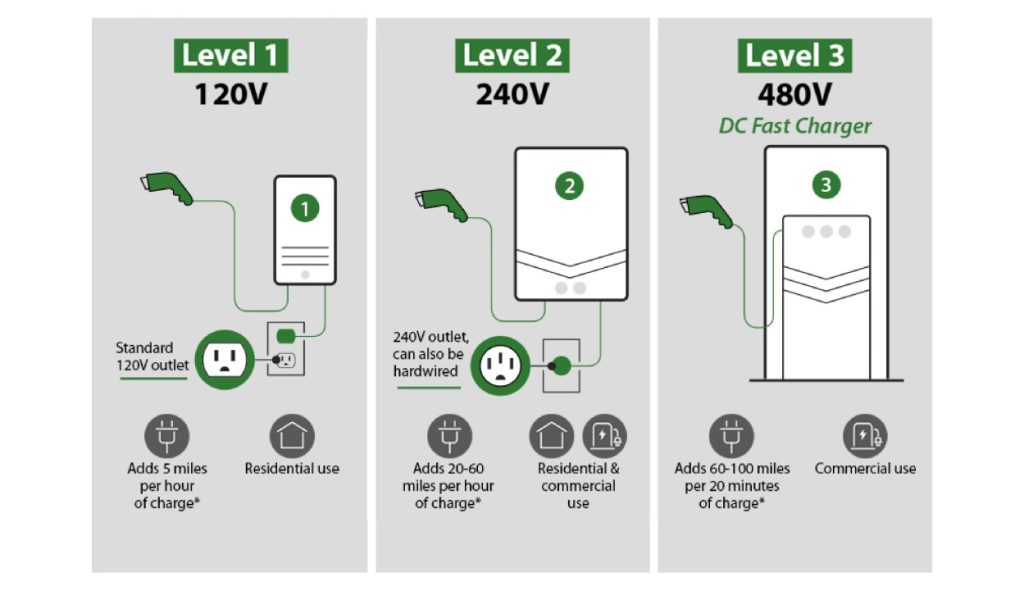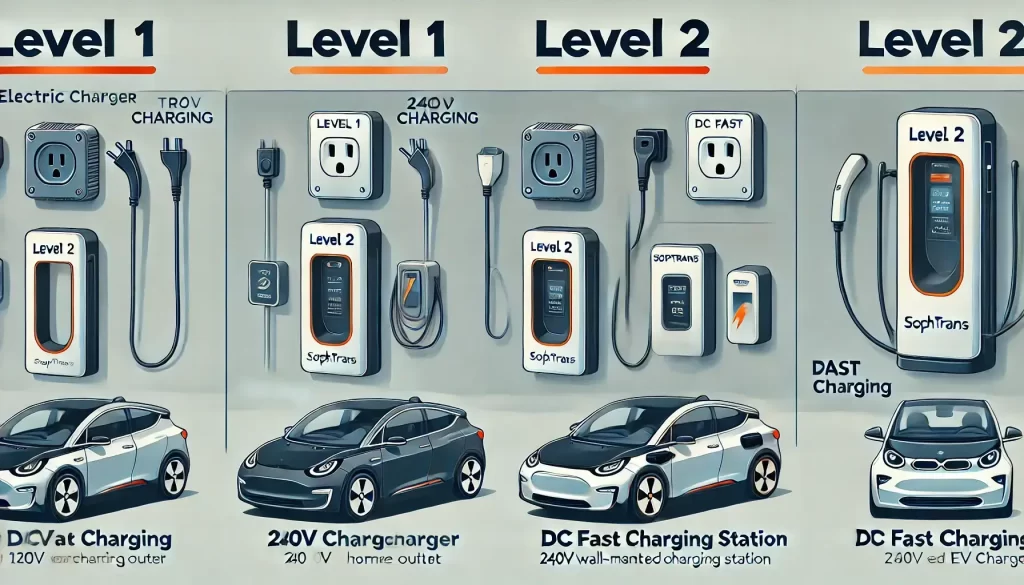How to Choose the Best DC Fast Charger?
Whether you’re establishing a new EV charging station or seeking an efficient solution to charge your electric vehicle, selecting the right DC fast charger is a crucial decision. However, due to variations in power output, compatibility, cost, and features, choosing the best charger can be challenging.

This guide explores the essential factors to consider, including charging speed, connector types, efficiency, cooling systems, and investment security to ensure you select the ideal DC fast charger for your needs.
Understanding DC Fast Charging
DC fast chargers, also known as rapid chargers, are highly efficient and designed to charge EVs quickly. They offer power outputs ranging from 22 kW to 350 kW, with some models enabling up to 400 km of range in just 15 minutes for certain vehicles. Unlike AC chargers, DC chargers bypass the onboard converter, directly supplying power to the EV battery, reducing charging time significantly.

DC Charging vs. AC Charging
| Feature | DC Charging | AC Charging |
|---|---|---|
| Power Delivery | Direct Current (DC) | Alternating Current (AC) |
| Charging Speed | 50 kW – 350 kW | 3.7 kW – 22 kW |
| Conversion | No onboard conversion needed | Requires onboard AC-to-DC conversion |
| Best Use Case | Public and high-speed charging | Home and overnight charging |
Types of DC Fast Chargers
Not all DC chargers suit every EV owner’s needs. Depending on power output, DC chargers are categorized into the following types:
- Low-power chargers (50-100 kW) – Suitable for small battery EVs, offering an 80% charge in about an hour.
- Mid-power chargers (100-200 kW) – Charges most EVs within 45 minutes.
- High-power chargers (200 kW and above) – Common in commercial stations, filling an empty battery in around 30 minutes.
- Ultra-fast chargers (500 kW and beyond) – The future of DC charging, targeting 10-minute charging times.
Key Factors to Consider When Choosing a DC Fast Charger
1. Charging Speed
The charging speed is measured in kW, with faster chargers capable of replenishing battery levels within shorter timeframes. Key considerations include:
- 50 kW chargers – Best for short charging sessions.
- 150 kW chargers – Ideal for full charges within an hour.
- 300+ kW chargers – Designed for ultra-fast charging.
2. Connector Types
EVs use different charging connectors, so selecting a compatible charger is crucial:
- CCS (Combined Charging System) – Widely used in Europe and North America.
- CHAdeMO – Common among Japanese manufacturers.
- Tesla Supercharger – Designed for Tesla vehicles but adaptable with converters.
For versatility, opt for chargers that support multiple connector types.
3. Scalable Power Options
Investing in a modular charger allows for power upgrades over time, preventing costly system replacements as demand grows.
4. Charging Efficiency
High-efficiency chargers reduce energy loss and operating costs. Look for:
- Efficiency ratings above 80%.
- Energy management systems to optimize power use.
5. Cooling Systems
Efficient heat management extends charger lifespan. Cooling methods include:
- Air cooling – Suitable for low-to-mid power chargers.
- Liquid cooling – Ideal for high-power and ultra-fast chargers.
Additional Features in DC Fast Chargers

Apart from speed and efficiency, modern DC fast chargers offer additional features for user convenience:
1. User-Friendly Interfaces
- Touchscreens with easy-to-follow instructions.
- Mobile apps for monitoring charging status, locating stations, and scheduling sessions.
2. Smart Charging Technology
- Automated power adjustments based on battery level and grid conditions.
- Load balancing for multiple EVs charging simultaneously.
3. Safety Features
- Surge protection to prevent power spikes.
- Automatic shut-off mechanisms for fault detection.
EV Compatibility Considerations
EVs have charging speed limits based on their battery design. Examples include:
- Hyundai & Nissan EVs – Support up to 150 kW charging.
- Porsche & Tesla – Support up to 250 kW charging.
Choose a DC fast charger based on your EV’s charging capacity to ensure optimal performance.
Regulations and Standards for DC Fast Chargers
Reliable DC fast chargers comply with international safety and interoperability standards, such as:
- IEC 62196 (Mennekes Standard) – Ensures global compatibility.
- UL 2202 & UL 2231 – North American safety certifications.
Regulatory compliance protects against electrical risks, overheating, and operational failures.
Public vs. Private DC Fast Chargers
| Feature | Public DC Charger | Private DC Charger |
| Power Output | 50 kW – 350 kW | 20 kW – 50 kW |
| Use Case | High-traffic areas, commercial spaces | Home or fleet charging |
| Payment System | Required | Not needed |
| Installation Complexity | High | Moderate |
For businesses, a public DC charger with payment integration and user authentication is necessary, while private DC chargers are simpler and more cost-effective for home use.
The Future of DC Fast Charging
The future of DC charging is focused on faster charging times, increased power output, and wireless technology. Advancements include:
- Ultra-fast charging – 500 kW+ power output for 10-minute full charges.
- Dynamic wireless charging – Eliminating cables and connectors.
- AI-driven smart charging – Enhancing grid optimization and predictive maintenance.
- Universal CCS standardization – Improving global compatibility and efficiency.
Frequently Asked Questions (FAQs)
1. Why choose a DC charger over an AC charger?
DC chargers deliver direct current (DC) power, bypassing the EV’s onboard converter, leading to faster charging.
2. How do I prevent a DC fast charger from overheating?
Choose a charger with advanced cooling systems, such as liquid cooling.
3. How do I know if my electrical system supports a DC fast charger?
Verify power capacity—a 480V+ electrical panel is often required for high-speed charging stations.
4. How can I ensure energy efficiency in a DC fast charger?
Opt for chargers with load management systems and smart grid integration to reduce energy waste.

Conclusion
Choosing the best DC fast charger depends on factors like charging speed, connector compatibility, efficiency, cooling systems, and smart features. Investing in a scalable, high-efficiency, and regulation-compliant charger ensures cost savings, reliability, and future-proof performance.
As DC charging technology evolves, the next generation of ultra-fast, AI-driven, and wireless solutions will redefine EV charging efficiency and convenience.

